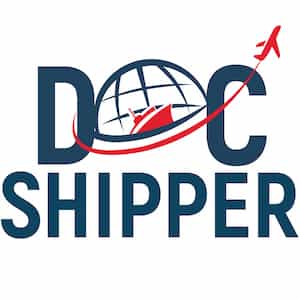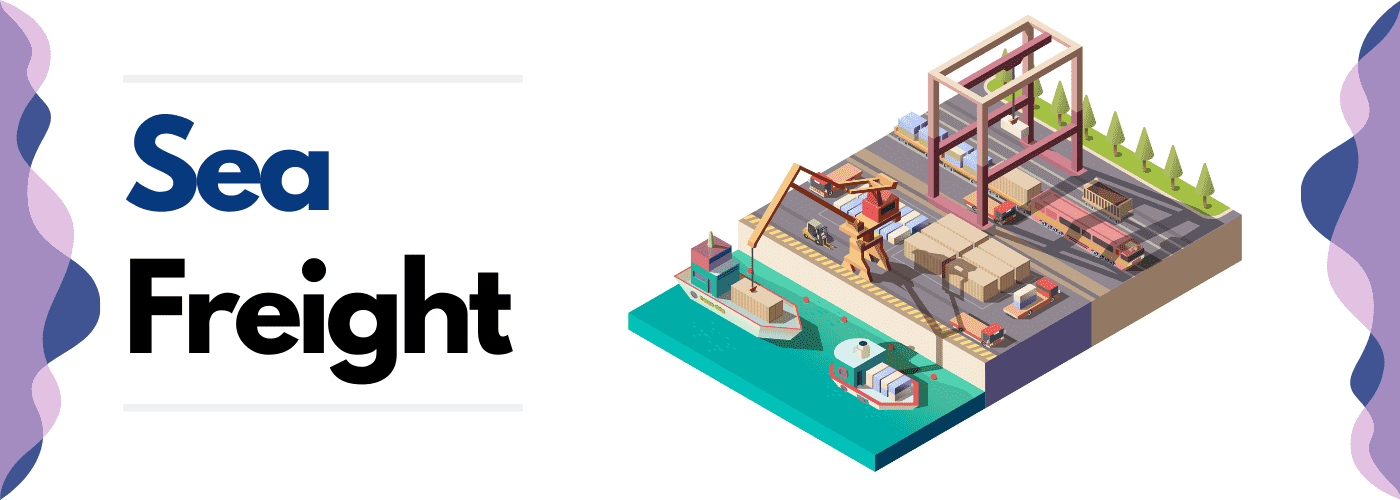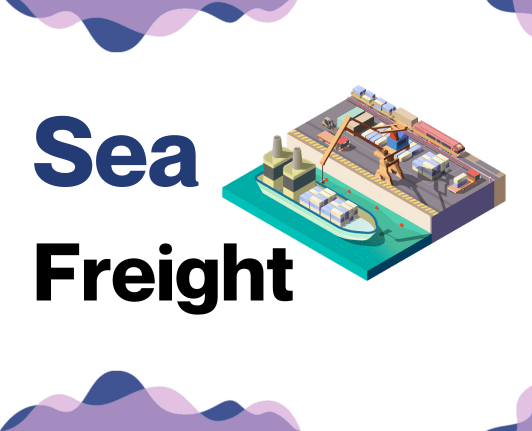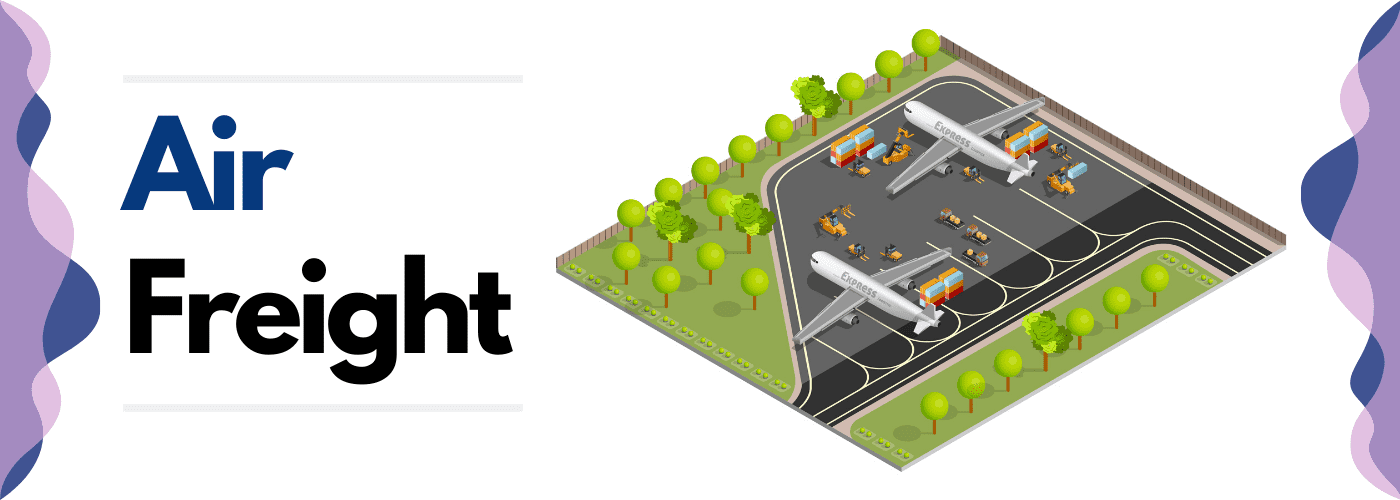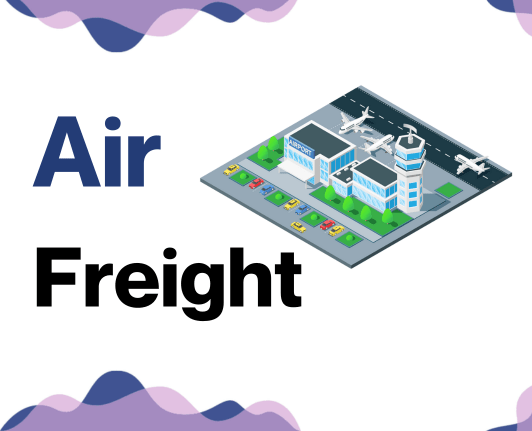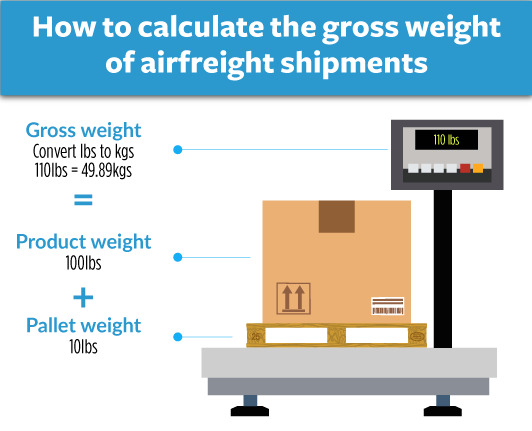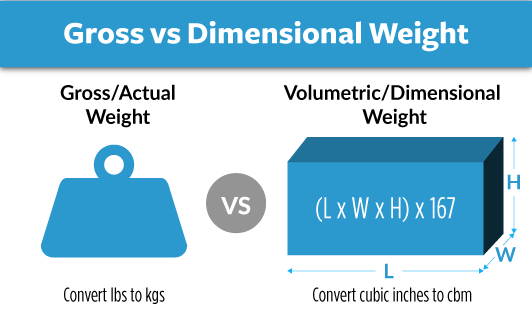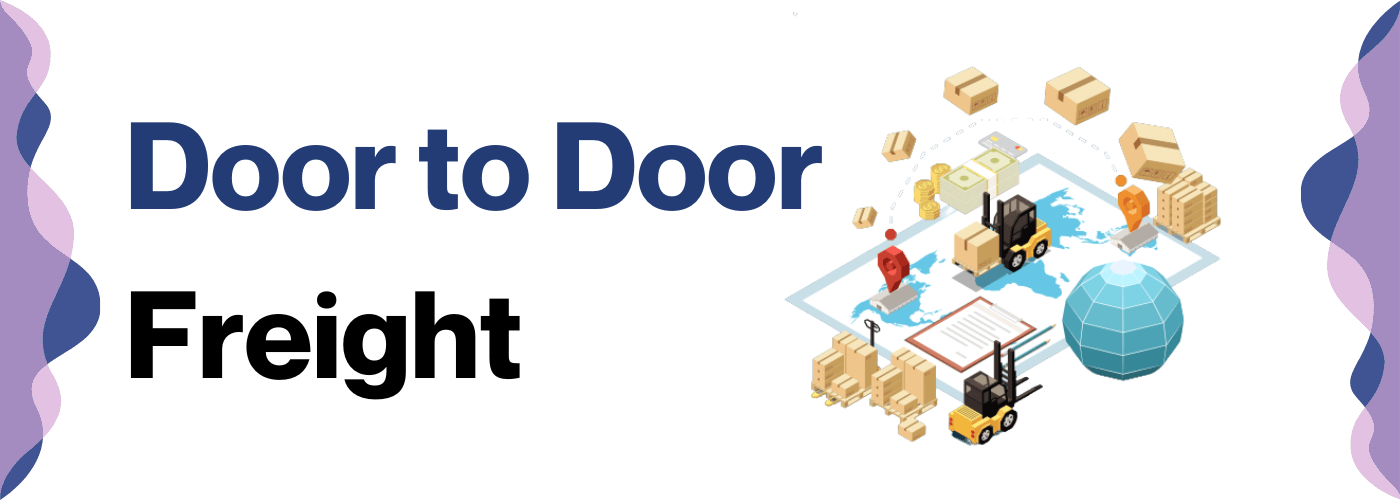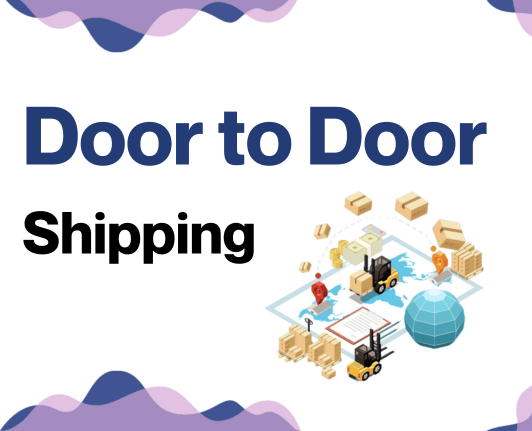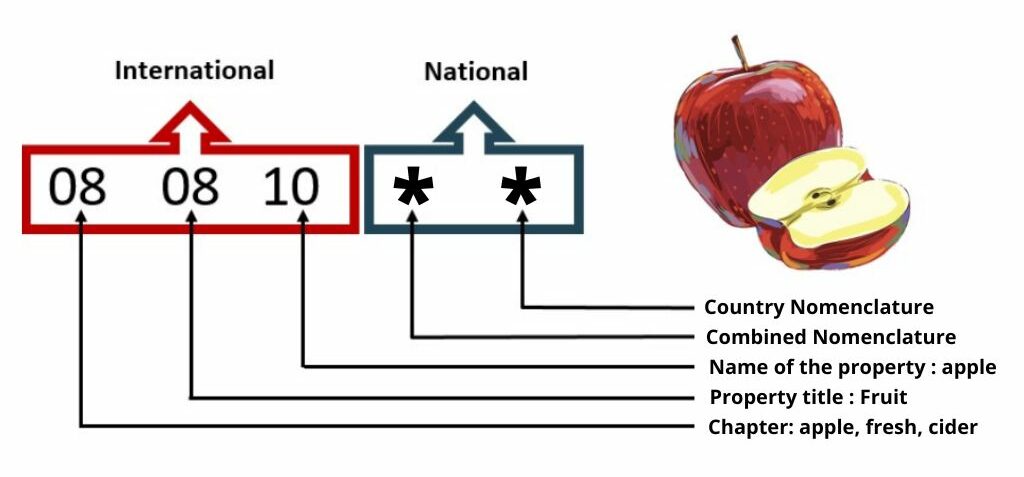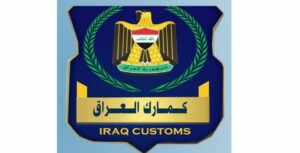Ever tried fitting a durian into a courier envelope? Neither have we, especially if you're shipping it from Malaysia to Iraq! With myriad factors such as understanding freight rates, transit times, and foreign customs, cross-border shipping can seem intimidating. This comprehensively detailed guide is tailored to address these pain points and provide crystal-clear insights into the world of freight transport between Malaysia and Iraq. We'll dive deep into different freight options - be it sea, air, road, or rail, and acquaint you with the nitty-gritties of customs clearance, duties, and taxes. You'll also receive expert advice tailored for businesses to excel in this logistical landscape. If the process still feels overwhelming, let DocShipper handle it for you! We transform complex shipping processes into success stories, managing every tiny detail to ensure an effortless shipping experience.
Table of Contents
Which are the different modes of transportation between Malaysia and Iraq?
Consider the distance between Malaysia and Iraq—it's like leaping across vast checkerboards, with thousands of miles and numerous borders to cross. Imagine it. Countries are like stepping-stones, transport methods are shoes. You don't want shoes that wear out midway, do you? Road and rail might be limits, but don't worry, there's the sky and sea. Air freight is your express delivery, like a swift magical carpet flying over all obstacles. But, if budget weighs heavy, ocean freight becomes your trusty turtle, slow but cost-saving. Remember, every business has its Cinderella slipper—your perfect transport method awaits! Choose wisely.
How can DocShipper help?
Looking to ship goods between Malaysia and Iraq? At DocShipper, we provide full-service freight forwarding, tackling all areas from customs clearance to administrative procedures. Our efficient service provides stress-free global transportation. Want better insight? Call our consultants for free, or to receive a free estimate within 24 hours, simply contact us.
DocShipper Tip: Sea freight might be the best solution for you if:
- You're dealing with hefty quantities or oversized goods. Sea transport is your go-to for maximizing space without stretching your budget.
- Time sensitivity isn't a concern for your shipment. Ocean freight is known for its leisurely pace, especially when compared to the speed of air or rail.
- Your supply chain connects key international harbors. This positions you to take full advantage of a wide-reaching network of ocean trade routes.
Sea freight between Malaysia and Iraq
When you're eyeing the oceanic route from Malaysia to Iraq, what's on your radar? This high-traffic shipping corridor signifies a prosperous trade relationship, with cargo vessels pulling into Malaysia's bustling Port Klang and Iraq's vital Umm Qasr Port. It's a journey made for shifting higher volume goods, courtesy of the cost-effectiveness of the briny deep. Yet, it is the tortoise in our shipping race; slower than air, rail, or road.
But movement is only part of the journey. Many businesses hit rough waters navigating the intricacies of shipping between these two countries. It's like a complex dance with many steps—miss one and you stumble! Yet, it doesn't have to be this way. In this guide, you'll discover how to sidestep common stumbling blocks and follow best practices that make the dance as fluid as a waltz. Walk through these pages, and let's set sail on a smoother shipping journey!
Main shipping ports in Malaysia
Port Klang
Location and Volume: Strategically situated on the west coast of Peninsular Malaysia, Port Klang is the country's busiest port. It maintains an annual shipping volume of over 11 million TEU, making it the 12th busiest port in the world.
Key Trading Partners and Strategic Importance: Crucial trading partners include China, Singapore, Indonesia, and India. The port's wide range of facilities and services also plays a pivotal role in Malaysia’s shipping and logistics sector, connecting the country to more than 120 countries.
Context for Businesses: If you're aiming to penetrate the Asian markets, Port Klang boasts excellent connectivity and offers a variety of marine, shipping and logistical services, making it a potentially significant player in your logistics strategy.
Port of Tanjung Pelepas
Location and Volume: Tucked away in the south-west corner of Peninsular Malaysia, the Port of Tanjung Pelepas is the second-largest port in the country, handling around 9 million TEU annually.
Key Trading Partners and Strategic Importance: The port's major trading partners include China, the US, and European Union countries. The port's strategic location on the eastern end of the busy east-west trade route enhances its importance in global trade.
Context for Businesses: If you're looking to scale your business in Malaysia or engage in extensive East-West trade, the Port of Tanjung Pelepas, with its state-of-the-art facilities and strategic location, may play a vital role in your overall shipping plans.
Port Penang
Location and Volume: Located in the Northwest Peninsular Malaysia, Port Penang is one of the oldest ports in the country and has an annual cargo volume of over 1.5 million TEU.
Key Trading Partners and Strategic Importance: Key trading partners include China, USA, Japan, and Singapore. The port's industrious Free Industrial Zone supports its strategic importance, further bolstered by its location along the Malacca Strait, one of the busiest shipping lanes globally.
Context for Businesses: If you're looking to establish a manufacturing base in Southeast Asia, or require access to busy maritime routes, Port Penang, with its well-developed logistics services and linkages to growth markets, may play a fundamental part in your logistics strategy.
Port of Bintulu
Location and Volume: Positioned on the north-western side of Borneo Island, the Port of Bintulu is prominent in handling liquid bulk cargo, with a shipping volume of around 45 million tonnes of cargo annually.
Key Trading Partners and Strategic Importance: Its major trading partners include Asian economies such as China, South Korea, Japan and Singapore. The port's strategic value lies in handling liquid natural gas (LNG) shipments - it's the world's third-largest LNG exporter.
Context for Businesses: If your business involves the oil and gas industry, the Port of Bintulu could be a pivotal part of your logistics, given its deep-water port facilities and significant LNG distribution network.
Labuan Port
Location and Volume: Situated off the coast of East Malaysia, Labuan Port plays a significant role in handling transhipment cargo, with an annual volume of over 1.5 million freight weight tonnes.
Key Trading Partners and Strategic Importance: It mainly trades with neighboring Southeast Asian countries and China. Its strategic importance is enhanced by its function as a prominent offshore financial centre and free trade zone.
Context for Businesses: If you're looking to navigate the Asian market efficiently and effectively, the free trade benefits and strategic location offered by Labuan Port may help streamline your logistics and reduce operating costs.
Port of Miri
Location and Volume: Nestled on the north-east coast of Borneo, the Port of Miri is crucial for coastal shipping lines within Malaysia. It handles approximately 1.5 million tonnes of cargo each year.
Key Trading Partners and Strategic Importance: Key trading partners include Brunei, Singapore, and Indonesia. The port's role in the northern region's marine cargo distribution emphasizes its strategic importance, not to mention the port's significance to the oil and gas industry.
Context for Businesses: If your company aims to tap into Borneo's natural resources or Brunei's markets, the Port of Miri's position provides a unique opportunity to navigate this relatively contained but vital segment of the shipping world.
Main shipping ports in Iraq
Port of Umm Qasr
Location and Volume: Situated in Basrah Close to the Kuwait border, Umm Qasr is the largest port in Iraq, with an annual container volume of over 1 million TEU.
Key Trading Partners and Strategic Importance: China, Turkey, and the UAE are major trading partners. Strategically, the port's depth allows for large vessels, and it's the primary entry point for imported goods in Iraq.
Context for Businesses: Should your business plan on penetrating the Middle Eastern markets, the Port of Umm Qasr plays a vital role in accessing customers in Iraq and its neighboring countries due to its extensive container handling facilities.
Port of Al Maqal
Location and Volume: Port of Al Maqal, also known as Port of Basra, is located on the main trade route along the Shatt al-Arab waterway. Its trade volume, though smaller than Umm Qasr, is critical to Iraq's domestic needs.
Key Trading Partners and Strategic Importance: Its key trading partners include Syria, Lebanon, and Jordan. Plus, Al Maqal's strategic importance lies in its proximity to rich oil fields, making it crucial for the energy sector.
Context for Businesses: If your business is in the energy sector or you are looking to explore the potent Eastern Iraq markets, the Port of Al Maqal is a prime choice with its centralized location and directly linking Iraq to its western neighbors.
Port of Khor Al-Zubair
Location and Volume: Khor Al-Zubair port is in the southern part of Iraq and has a substantial throughput, handling 300,000 TEU annually.
Key Trading Partners and Strategic Importance: This port facilitates trade with Iran, Kuwait, and other Gulf countries. It is an important terminal for the export of petroleum products and import of general cargo.
Context for Businesses: If your business involves petroleum products or heavy cargo, the utilization of Khor Al-Zubair in your logistics strategy significantly boosts your shipping efficiency due to its specialties and geographical advantage.
In summary, Iraq boasts a selection of ports each with unique advantages. Depending on your industry and target markets, you can leverage different ports to optimize your strategy. Do thorough research and due diligence before choosing a port for your business needs to ensure smooth sailing.
Should I choose FCL or LCL when shipping between Malaysia and Iraq?
Choosing between Full Container Load (FCL) or Less-than Container Load (LCL), commonly known as consolidation, is one of the key decision points when shipping goods between Malaysia and Iraq. This choice carries crucial implications for your cost, shipping time, and overall success. This section breaks down each option in understandable terms, helping you assess your specific needs and make a smart, cost-effective decision that positively impacts your bottom line and customer satisfaction. Let's unpack these two sea freight options, and discover which best fits your business strategy.
LCL: Less than Container Load
Definition: LCL (Less than Container Load) shipping is an affordable shipping option where multiple shippers' cargoes are consolidated into a single container. It's ideal for businesses shipping smaller volumes across international borders.
When to Use: If your business is dealing in smaller volumes, typically less than 13 CBM (Cubic Meters), LCL shipping fits the bill perfectly. This is because it can provide a cost-effective and flexible solution without the need for enough goods to fill an entire container.
Example: An Indonesian furniture manufacturer producing custom, artisan tables wishes to send a batch of 20 tables to a store in Iraq. The combined volume doesn't exceed 13 CBM, making LCL shipment the better choice than a whole empty container floating at sea.
Cost Implications: While LCL freight rates are usually higher per cubic meter than FCL (Full Container Load) rates, the overall cost is often more affordable for low volume shipments. Because you're paying only for the space you're using in the container, there are opportunities for cost savings compared to FCL. However, be aware of potential additional charges like LCL handling fees at ports, which can impact the final shipping bill.
FCL: Full Container Load
Definition: FCL or Full Container Load shipping refers to transportation where you rent the full capacity of a container, typically a 20'ft or 40'ft container. The decision to choose FCL rests on volume; it's believed to be cheaper and safer as the container remains sealed from pick-up in Malaysia to delivery in Iraq.
When to Use: FCL proves advantageous when shipping more than 13/14/15 CBM. If your cargo's volume hits this range, or surpasses it, utilizing an FCL container could save you cost significantly.
Example: Suppose your business exports heavy, bulk items like automotive parts from Malaysia to Iraq. You'd likely fill up a 20'ft container, making FCL the most reasonable and secure option.
Cost Implications: An FCL shipping quote considers the cost of renting a full container, which might seem high upfront. However, when considering the cost per unit space, FCL shipping often turns out more economical the higher your cargo volume, given you're utilizing the entire available space. Plus, the assurance of improved cargo safety can save potential costs arising from damage during transit.
Unlock hassle-free shipping
Embarking on a Malaysia to Iraq freight journey? Let DocShipper simplify your experience. Our ocean freight experts take into account your specific cargo type, volume, and budget to guide your consolidation or full container decision. We aim for a seamless shipping process, every step of the way. Confused about the better option? Reach out to us. Get a free, customised freight estimation and sail smoothly in the global trade waters. Your perfect shipping solution is just a call away!
How long does sea freight take between Malaysia and Iraq?
Shipments between Malaysia and Iraq typically take an average of 20-45 days. It's vital to comprehend that transit times are influenced by several factors, including the specific ports used, the cargo's weight, and the nature of the goods being shipped. For the most accurate and customised shipping times, we always recommend reaching out to professional freight forwarding services like DocShipper.
Below, you can find a representation of the average sea freight transit times from the main ports in Malaysia and Iraq:
| From Malaysia | Iraq | Average Transit Time (Days) |
| Port Klang | Umm Qasr | 25 |
| Tanjung Pelepas | Umm Qasr | 27 |
| Penang Port | Umm Qasr | 22 |
| Kuantan Port | Umm Qasr | 30 |
*Please note, these are estimations and actual delivery times may vary. For a precise and personalised quote, don't hesitate to contact us.
How much does it cost to ship a container between Malaysia and Iraq?
When it comes to ocean freight rates, a precise figure for shipping cost from Malaysia to Iraq can be as elusive as a pearl in the deep, due to ever-changing variables such as the Point of Loading and Destination, the nature of goods, carrier selection, and fickle monthly market shifts. Although we're disclosing a broad price bracket per CBM here, rest assured, the ambiguities of sea trade don't have to rock your boat. Our seasoned shipping specialists are on deck to provide you with tailored quotes, anchoring the best rates for your specific cargo journey on a case-by-case basis. We navigate the high seas of logistics so you don't have to. Your voyage to optimal shipping solutions starts here.
Special transportation services
Out of Gauge (OOG) Container
Definition: Out of Gauge (OOG) Containers are specialized containers for oversized goods that don't fit into standard containers due to exceptional height, width or length. They permit the shipping of goods that cannot be dismantled into smaller parts.
Suitable for: OOG containers are suitable for loading large machinery, long pipes, heavy equipment, or any large or heavy out of gauge cargo that doesn’t fit within standard container dimensions.
Examples: This might include components of oil rigs, wind turbines, or heavy construction machinery.
Why it might be the best choice for you: If your business needs to ship large and heavy items between Malaysia and Iraq, an OOG container minimizes the dismantling and reassembling efforts.
Break Bulk
Definition: Break bulk is a method where goods are loaded individually and not in containers. Due to the nature of the cargo, each piece gets special attention and is handled separately.
Suitable for: It's suitable for large items which are difficult to fit into containers such as heavy machinery, timber, or construction materials.
Examples: Think large factory components, propellers for ships, or large wooden beams for construction.
Why it might be the best choice for you: If your business needs to transport giant, hard-to-handle items, utilizing break bulk can offer more straightforward handling.
Dry Bulk
Definition: Dry bulk is used to transport loose cargo load like grain, coal, and iron ore in large quantities.
Suitable for: Companies that trade or manufacture raw materials (like agriculture or mining) might make extensive use of dry bulk shipping.
Examples: Common goods shipped are coal, cement, grains, or fertilizers.
Why it might be the best choice for you: If your business deals with significant volumes of loose, dry materials, dry bulk shipping is an efficient and cost-effective method to consider.
Roll-on/Roll-off (Ro-Ro)
Definition: Roll-on/Roll-off (Ro-Ro) is a vessel designed to carry cargo which can be driven or towed on and off, without needing cranes or other equipment.
Suitable for: Ideal for transport of cars, trucks, heavy-duty machinery, and even railway wagons.
Examples: This can include new cars for dealerships, tractor units, or road construction machinery like asphalt spreaders.
Why it might be the best choice for you: If you deal in vehicles or any wheel-based cargo that can quickly roll on and off a ro-ro vessel, it's the most convenient and safest option.
Reefer Containers
Definition: Reefer containers are refrigerated shipping containers used for perishable items that require a specific temperature during transit.
Suitable for: They are used by businesses involved in fresh produce, pharmaceuticals, or frozen food products.
Examples: These could include a shipment of pharmaceuticals, fresh fruits, or seafood exports.
Why it might be the best choice for you: If maintaining a predetermined temperature during transit is vital for your cargo, reefer containers offer precisely that assurance.
Choosing the right shipping method is critical for your business' effectiveness and profitability. At DocShipper, we understand the nuances of each and are ready to assist you with all your shipping needs. Reach out to us and get your free shipping quote in less than 24 hours.
DocShipper Tip: Air freight might be the best solution for you if:
- You're pressed for time or facing a non-negotiable deadline. Air freight delivers unparalleled speed when it comes to transit times.
- Your shipment is modest in size, falling under 2 CBM. Air freight is particularly well-suited for these smaller consignments.
- Your supply chain includes destinations that are off the beaten maritime or rail paths. Air freight gives you access to a comprehensive global airport network.
Air freight between Malaysia and Iraq
Air freight from Malaysia to Iraq offers a lightning-fast and reliable way to ship your goodies abroad, whether it's Batik fabric or digital devices. Imagine it like getting a pizza delivered: It's the fastest way to fill your international craving! High-value, lightweight goods can zippy along on this express route without burning too big a hole in your pocket.
However, many businesses stumble on this speedy runway. For example, you might end up feeding your hard-earned money to hidden costs if you miscalculate your air shipment's weight. Picture not knowing the extra large pizza box won't fit in your mini pocket-size fridge—a costly misjudgment! That's why, in this guide, we peel back the layers, so you're not blindsided and wind up with a bigger bill than expected. We want to help you make the best shipping decisions, save money, and avoid unnecessary stress.
Air Cargo vs Express Air Freight: How should I ship?
Struggling to choose between air cargo and express air freight for your Malaysia to Iraq shipments? The key difference is straightforward: air cargo gets a seat on a commercial airline, while express air freight commands the VIP exclusivity of a dedicated plane. This section will help you weigh the pros and cons, ensuring your business makes the smartest call. Stay tuned!
Should I choose Air Cargo between Malaysia and Iraq?
If you're aiming for cost-effectiveness and reliability, air cargo can be a remarkable solution for shipping between Malaysia and Iraq. Major players like Malaysia Airlines and Iraqi Airways offer substantial air freight services. Despite longer transit times from scheduled flights, their promptness has proven beneficial. Particularly, shipments exceeding 100/150 kg (220/330 lbs) typically enjoy more attractive pricing. An insightful glimpse at your budget and time constraints can help you decide on this course. Understanding your business needs will aid in maximizing the benefit from your shipping efforts. Happy freight planning!
Should I choose Express Air Freight between Malaysia and Iraq?
When you need to get a shipment under 1 CBM or 150kg (330 lbs) from Malaysia to Iraq quickly, express air freight is a top choice. Unlike passenger flights, express air freight uses dedicated cargo planes, ensuring that your shipment gets priority. This service, offered by internationally recognized courier companies like FedEx, UPS, or DHL, stands apart for its speed and efficiency. If time's a crucial factor for your business, these express services are a solid bet. Plus, they handle smaller packages with the utmost care, ensuring your goods arrive safely at their destination. Choose express air freight to give your shipments the speed and attention they deserve.
Main international airports in Malaysia
Kuala Lumpur International Airport (KLIA)
Cargo Volume: KLIA handled approximately 816,516 metric tonnes of cargo in 2022, being one of the busiest cargo airports in Southeast Asia.
Key Trading Partners: Important trade connections are with China, India, the USA, Japan, and Australia.
Strategic Importance: Positioned in a prominent location, it offers an essential link between Asia and the rest of the world, supporting global trade operations.
Notable Features: KLIA Cargo Village is a one-stop cargo-handling center offering 24-hour customs clearance and quarantine services. The airport is equipped with two state-of-the-art Advanced Cargo Centres.
For Your Business: With its robust cargo handling accommodations and emphasis on high-speed logistics, KLIA might be the ideal choice for reliably shipping your goods to and from Asia.
Penang International Airport
Cargo Volume: In 2022, it facilitated the transportation of over 201,000 metric tonnes.
Key Trading Partners: Major trade partners include China, Indonesia, USA, and Japan.
Strategic Importance: It is a key transport center for Northern Malaysia, not only providing access to Asia but also linking Malaysia to Europe through its cargo airlines.
Notable Features: The Penang Cargo Centre can accommodate different cargo types, and the airport has modern cold storage facilities, suggesting strong capabilities in opportune shipping, especially for perishable goods.
For Your Business: If your business deals with perishable goods or has logistics needs in Northern Malaysia, Penang International Airport could offer critical capabilities.
Senai International Airport
Cargo Volume: Senai handled over 10,000 metric tonnes of air freight annually.
Key Trading Partners: The airport has direct flights to regional trading powerhouses including Vietnam, Hong Kong, and Cambodia.
Strategic Importance: It serves the industrial hub of Southern Malaysia and is the only airport in the region with cargo facilities.
Notable Features: It boasts 24-hour customs facilities, bonded warehousing, and a dedicated Free Industrial Zone, allowing quicker business operations.
For Your Business: If your business requires fast customs and comprehensive warehousing services in Southern Malaysia, Senai International Airport would be your go-to freight solution.
Sultan Abdul Aziz Shah Airport
Cargo Volume: Handled over 7,000 metric tonnes of cargo annually.
Key Trading Partners: The airport frequently sends shipments to neighboring Asian countries, Europe, and North America.
Strategic Importance: Situated close to Kuala Lumpur, it serves as an alternative to KLIA, particularly for regional flights.
Notable Features: It is well-equipped with cargo logistics facilities and has a team of cargo services professionals.
For Your Business: Proximity to Kuala Lumpur coupled with well-equipped facilities makes this airport a suitable alternative for your regional cargo requirements.
Kuching International Airport
Cargo Volume: Handled over 26,000 metric tonnes of cargo in 2022.
Key Trading Partners: Significant trade partners include China, Indonesia, and Australia.
Strategic Importance: Providing a vital link for Borneo with the rest of Malaysia and beyond, it supports economic trade operations on the island.
Notable Features: 24-hour operation, customs services, and its strategic location in Borneo make it a robust player in airborne freight.
For Your Business: For logistics and shipping needs on Borneo, Kuching International Airport could offer unique and effective solutions.
Main international airports in Iraq
Basra International Airport
Cargo Volume: Approximately 65,000 tons annually.
Key Trading Partners: Primarily deals with Asia and Europe, especially India, China, the United Kingdom, and Germany.
Strategic Importance: Situated near the Port of Basra, the airport is a significant connection for air-sea transportation, supporting supply chain diversification.
Notable Features: Houses a dedicated cargo terminal and customs department, offering round-the-clock cargo handling services, simplifying the import and export process.
For Your Business: If your business frequently trades with Asian or European partners, Basra could be the perfect hub for your cargo, offering synergistic air-sea transport solutions.
Baghdad International Airport
Cargo Volume: Handles over 150,000 tons of cargo annually.
Key Trading Partners: Primarily serves destinations in the Middle East, Asia, and Europe.
Strategic Importance: As the largest airport in Iraq, it plays a key role in supporting Iraq's foreign trade.
Notable Features: Equipped with a modern cargo village providing comprehensive logistic solutions.
For Your Business: If your shipping needs demand access to diverse markets, Baghdad International Airport's comprehensive logistics solutions are sure to support your trade endeavors.
Erbil International Airport
Cargo Volume: Handles about 50,000-60,000 tons of cargo annually.
Key Trading Partners: Main trading partners are countries in the Middle East and Europe, such as Turkey and the UAE.
Strategic Importance: Its location in northern Iraq offers a strategic advantage for overseeing cargo around the region.
Notable Features: Hosts a state-of-the-art cargo facility and is the hub for several international cargo airlines.
For Your Business: Located in the fast-developing region of northern Iraq, Erbil International Airport can provide your business with efficient cargo handling services, ensuring speedy delivery to the Middle East and European markets.
Sulaymaniyah International Airport
Cargo Volume: Approximately 40,000 tons annually.
Key Trading Partners: The main partners are Middle Eastern and European countries, including Turkey, Iran, and Germany.
Strategic Importance: It stands as the second-largest airport in northern Iraq, serving as an alternative gateway to the Middle East and Europe.
Notable Features: Houses a modern cargo terminal designed according to international standards.
For Your Business: If diversification is crucial for your business, Sulaymaniyah can serve as an alternate gateway for your Middle Eastern and European shipments, thereby reducing supply chain risks.
Najaf International Airport
Cargo Volume: Handles over 20,000 tons of cargo annually.
Key Trading Partners: Primarily deals with Middle Eastern countries, including Iran, Turkey, and Jordan.
Strategic Importance: Even though smaller in scale, its proximity to the Najaf sea port provides convenient options for air-sea transportation.
Notable Features: Equipped with a specialized cargo terminal and a recently expanded runway.
For Your Business: The location of Najaf International Airport offers a unique air-sea connectivity. If your business seeks convenience in managing the logistics of shipping to Middle Eastern countries, this airport could serve as your optimal choice.
How long does air freight take between Malaysia and Iraq?
Shipping goods from Malaysia to Iraq via air freight typically takes between 4 to 6 days. However, remember that these timelines can fluctuate depending on factors such as the exact airports of departure and arrival, the weight and nature of the goods being shipped. For more precise and customized shipping times, it's always best to consult with an experienced freight forwarder like DocShipper.
How much does it cost to ship a parcel between Malaysia and Iraq with air freight?
Shipping air freight from Malaysia to Iraq generally costs between $3.50 to $7.00 per kilogram. However, many factors influence final costs including departure and arrival points, item size, weight, and nature of the goods. It's important to know that an 'off-the-shelf' rate often doesn't exist. At our freight company, we focus on crafting bespoke quotations that fit your specific needs, ensuring you get the most value. To find out exactly how much your shipment will cost, reach out to us for a free quote. Our team can provide detailed pricing within 24 hours. Contact us now and let's start shipping smart.
What is the difference between volumetric and gross weight?
Gross weight refers to the overall weight of an actual shipment, including all wrappings, packaging, and the contents within. Volumetric weight, on the other hand, represents the pure space that a shipment occupies on an aircraft.
In air cargo and express air freight services, gross weight is simply calculated by weighing the entire shipment (in kg), converted to lbs as needed.
Volumetric weight is determined by multiplying each of the three dimensions (length, breadth, and height in cm) of the shipment, and then dividing that by 6000. This formula accounts for the space occupied by the shipment on an aircraft.
Let's consider a hypothetical shipment with gross weight of 45 kg (about 99.2 lbs) and dimensions of 50 cm x 70 cm x 60 cm. The volumetric weight would be {(50x70x60)/6000} or 35 kg, which is approximately 77.2 lbs.
Freight charges may vary based on either gross weight or volumetric weight, depending on which is higher. This calculation helps shipping firms optimize their cargo capacity, ensuring that they charge appropriately for space-heavy but lightweight shipments. Remember, the idea is to prevent low weight but bulky cargo from taking up valuable space without adequate revenue. It's part of the balancing act to maximize return on each flight.
DocShipper tip: Door to Door might be the best solution for you if:
- You value convenience and want a seamless shipping process, as door-to-door takes care of every step from pickup to delivery.
- You prefer a single point of contact, as door-to-door services typically provide a dedicated agent to handle all aspects of the shipment.
- You want to minimize the handling of your goods, reducing the risk of damage or loss, as door-to-door minimizes transitions between different modes of transport.
Door to door between Malaysia and Iraq
Exploring the world of international door-to-door shipping, it's a comprehensive service that shifts your shipment from Malaysia straight to Iraq, right to the doorstep! This all-inclusive method brings efficiency, transparency, and seamless customs management. Ready to learn how this could be a game-changer for your business? Let's dive in!
Overview – Door to Door
Door to door shipping from Malaysia to Iraq takes the headache out of logistics. This popular service, sought by numerous DocShipper clients, handles transport, customs clearance, and delivery directly to your chosen location. Forget about the complexities of shipping, customs duties, and local infrastructural challenges! While this service tends to be pricier, it offers a stress-free solution and peace of mind. Ideal for businesses seeking smooth, efficient freight forwarding, remember that no solution is perfect. It's crucial to weigh up the benefits against potential delays or hidden charges. Work smarter, not harder, with door to door shipping!
Why should I use a Door to Door service between Malaysia and Iraq?
Ever tried juggling flaming torches? No? Well, coordinating the shipping of goods from Malaysia to Iraq can feel eerily similar! But don't fret! A Door-to-Door service can extinguish that stress. Below are the top five reasons why it's your ideal choice:
1. Logistics Stress-Relief: Think of Door-to-Door service as your personal logistics ninja, silently clearing hurdles for you. From pick-up to delivery, your goods are in our skilled hands. You won't even have to lift a finger (except to dial our number, perhaps).
2. Prompt Deliveries: Urgent shipments? We've got you. The service ensures your shipments reach their Iraqi destination, however remote, straight from Malaysia within the agreed timeframe. Say goodbye to those nerve-wracking delivery delays.
3. Expert Handling of Complex Cargo: Navigating complex shipments is a delicate art. Whether your cargo requires special attention or extra paperwork, our experts ensure it's delivered to Iraq hassle-free, meeting all the necessary regulations.
4. It's Door-to-Door, Literally!: No pesky transfer hubs, move points, or pick-up locations. Your goods are picked up from any location in Malaysia and trucked directly to the end destination in Iraq. A smooth ride straight from door to door!
5. Convenience: Above all, Door-to-Door service is specifically designed to make your shipping experience as convenient as possible. No need for you to worry about customs, legislations, and other brain-frying details. You focus on your business; we'll handle the hard stuff.
Plan smart, ship smarter with a Door-to-Door service. Because the only flaming torches worth juggling are at your company's 4th of July barbecue!
DocShipper – Door to Door specialist between Malaysia and Iraq
Experience hassle-free shipping from Malaysia to Iraq with DocShipper! We've revolutionized freight forwarding, managing the entire process for you – from packing to transport, customs, and beyond. Our skilled team handles all shipping methods seamlessly, ensuring your goods arrive safe and on schedule. You also benefit from a dedicated Account Executive, there to assist you at every step. Ready to ship globally without the stress? Request your free estimate today and receive a response in less than 24 hours. For immediate advice, consult our team at no charge.
Customs clearance in Iraq for goods imported from Malaysia
Navigating customs clearance – the process of getting your goods approved to enter a country – can be a minefield. When importing goods from Malaysia to Iraq, you're dealing with a complex system that’s full of potential pitfalls like unforeseen costs or delays. Understanding the ins and outs of customs duties, taxes, quotas, and licenses is essential to avoid the risk of your cargo getting stuck at the border. Luckily, the upcoming sections will guide you through these areas in detail. Keep in mind that DocShipper handles the entire procedure for all types of goods globally. To get an estimate for your project, just provide the origin of your goods, their value, and the HS Code, and our team will gladly assist you.
How to calculate duties & taxes when importing from Malaysia to Iraq?
Navigating the labyrinth of customs duties and taxes while importing goods from Malaysia to Iraq can feel like a daunting task. However, fear not, as this process can be simplified by breaking it down into elements you need to know: the country of origin, the Harmonized System (HS) Code, the customs value, the applicable tariff rate, and any other taxes and fees that possibly apply to your products. Furthermore, don't forget to identify the country where the goods were manufactured or produced, as this detail is foundational in determining your import costs and ensuring a smooth shipping process.
Step 1 - Identify the Country of Origin
First off, why is pinpointing the Country of Origin so critical? Let's delve into five major reasons.
1. Trade agreements: Iraq has specific trade partnerships with Malaysia, which can impact your duties and taxes. Knowing the origin of your goods uncovers potential discounts you might be eligible for.
2. Accurate duty calculations: Duty rates vary depending on the country of origin, making this step indispensable.
3. Compliance: Import laws require accurate documentation of product origin. Skirting around this could land you in hot water.
4. Product classification: Origin identification plays a role in determining the Harmonized System (HS) code for your goods.
5. Import restrictions: Import laws in Iraq could limit specific goods from Malaysia, meaning some items might be unavailable for import.
Now that you know why it's so vital, you may wonder about specifics of Malaysia-Iraq trade agreements. These agreements work to ease trade, often lowering customs duties. Issues with import restrictions? Worry not. Practical advice tailored to your needs is waiting in our next section. Stay tuned.
Step 2 - Find the HS Code of your product
The Harmonized System (HS) Code is a standardized numerical method of classifying traded products, developed and maintained by the World Customs Organization (WCO). This comprehensive product coding system is utilized by more than 200 countries for taxation, trade policy, monitoring of controlled goods, rules of origin, freight tariffs, transport statistics, and other administrative aspects.
Usually, your supplier will be well-versed with the HS codes pertinent to their products, so the easiest way to find the HS code would be to inquire directly from them. They are well acquainted with the commodities they're exporting and their relevant regulations.
However, if you're unable to source this information from your supplier, don't worry - we've got you covered. Here's an easy, step-by-step process for how to find it:
1. Visit the Harmonized Tariff Schedule website.
2. Use the search bar to input the name of your product.
3. Check the 'Heading/Subheading' column; this is where you'll find your HS code.
A word of caution: accuracy in selecting the HS Code for your product is crucial. Keep in mind that if a wrong code is used, it could lead to potential trade disruptions, such as delays in customs clearance, or even fines.
Here's an infographic showing you how to read an HS code.
Step 3 - Calculate the Customs Value
Unraveling the term 'Customs Value' might feel like a maze, but stick with us and you'll see it's quite simple. Instead of the actual price you paid for your goods from Malaysia, Iraq Customs uses a figure called the Customs Value. Consider it as the cost of your products, international shipping charges, and insurance cost all rolled into one - that's your CIF value. For instance, let's say your goods cost $1000, with $200 as shipping fees and $30 for insurance, your Customs Value would be $1230. This is the basis for determining duties, not the actual product value. Understanding the distinction and calculation can save you from unnecessary surprises when clearing your goods in Iraq. Keep this formula handy: Customs Value equals the price of the goods plus shipping and insurance cost.
Step 4 - Figure out the applicable Import Tariff
An import tariff is a tax imposed by a country's government on goods coming in from abroad. For goods shipped from Malaysia to Iraq, it's essential to know which tariff applies. Iraq uses a Harmonized System (HS), the same designation used worldwide for the classification of goods.
To find your product's tariff, first, locate your product's HS code, which was identified earlier. Then, navigate to your chosen trade tariff database to access detailed information about your product's specific rate.
For instance, let's say you're importing rubber boots, designated under the HS code 6401.92. Using a tool like the national customs website or a trade database, we find the tariff for this product is 15%. If your total insurance and freight cost (CIF) is $10,000, your import duty will be 15% of this value, i.e. $1,500.
Your final cost will then be the sum of your CIF and import duties. In our example, that's $10,000 (CIF) + $1,500 (duty) = $11,500. By knowing these costs upfront, you can navigate the import process much more smoothly. Keep in mind that tariffs can occasionally be updated, so it's crucial to check the rates regularly.
Step 5 - Consider other Import Duties and Taxes
In the complexities of international shipping, it's vital to be aware that the standard tariff may not be the only cost you'll face when importing goods from Malaysia to Iraq. Additional duties could include excise duties, anti-dumping taxes, and VAT rates.
For instance, excise duty can apply to specific goods depending on their nature. Let's consider a hypothetical scenario: you're importing luxury cars, subject to an additional excise duty of, say, 10%. On a car valued at $50,000 USD, this would mean an incremental $5,000 USD to budget for.
Anti-dumping taxes are another additional cost. These are levied to protect local industries from lower-priced imported goods. For example, let's say you're importing steel at $500 per tonne, and the anti-dumping duty is 5%. An extra $25 per tonne would need to be accounted for.
Most significantly, the VAT may be your largest extra expense, often a significant percentage of the item's value. If the VAT in Iraq is 15%, an item valued at $1,000 USD would warrant an additional $150 USD for VAT.
Bear in mind, these values and examples are indicative and actual rates may differ. Study your product categories, liaise with a customs broker, and engage with local business advisories to ensure you're fully informed and equipped to handle the import process smoothly.
Step 6 - Calculate the Customs Duties
Customs duties in Iraq, when importing goods from Malaysia, are calculated using a simple formula. The basis of the fee starts with the customs value, which is the cost, insurance, and freight (CIF) price of the goods. Duties are then added to this value.
In our first example, let's take a shipment with a customs value of $10,000 and a duty rate of 5%. You would calculate your customs duties as $10,000 5% equals $500. There's no Value-Added Tax (VAT) in this case.
For our second scenario, imagine a customs value of $7,000, the same 5% duty rate, and a 10% VAT. Firstly, compute the customs duty ($7,000 5% equals $350). Then, add this duty to your shipment value ($7,000 + $350), and calculate 10% of this total for your VAT.
Our last example includes customs value ($5,000), duties (5%), VAT (10%), anti-dumping taxes (10%), and an Excise Duty (15%). After computing your customs ($250) and VAT ($525), apply the anti-dumping taxes and excise duty on the initial value plus duty, sequentially.
While these examples illustrate the basics, keep in mind they are simplified. The real world of customs duties can be much more complex, with countless variables and potential for unexpected charges. That's where DocShipper comes in. Our expert customs teams handle every step of the clearance process worldwide, ensuring that you're not paying a cent more than you should. Reach out today for a free quote within 24 hours.
Does DocShipper charge customs fees?
Here's a myth-buster: DocShipper, your trusted customs broker in Malaysia and Iraq, doesn't charge you any customs duties. What we do charge for are customs clearance services. It's crucial to differentiate these from customs duties and taxes levied by the government. Think of it as us simplifying the complex clearance procedures for you while the actual tax payment happens between you and the government. And here's the transparency bit: we provide you all the relevant documents from the customs office, so you're sure of paying just what's due, nothing more.
Contact Details for Customs Authorities
Malaysia Customs
Official name: Royal Malaysian Customs Department
Official website: http://www.customs.gov.my/en/
Iraq Customs
Official name: General Commission of Customs of Iraq
Official website: http://www.customs.mof.gov.iq/
Required documents for customs clearance
Unravel the complexities of cross-border shipping with our discussion on key customs clearance documents. We'll demystify the Bill of Lading, Packing List, Certificate of Origin, and CE standard conformity docs, all vital for making your import-export journey smoother. Let's tackle these unavoidable paperwork challenges head-on.
Bill of Lading
When shipping goods from Malaysia to Iraq, your 'Bill of Lading' is an absolute must-have. Think of it as the official 'handshake' that passes the ownership title of your goods from the shipper to the consignee. It's like when you close a deal in a meeting by shaking hands, but this is between entities in international trade. Opting for an electronic, or 'telex', release can be a real game-changer too. Not only does it allow faster access to your goods, but it also eliminates the risks associated with losing or damaging physical documents. For air cargo? You'd need an Air Waybill (AWB) instead. To make your shipping journey smoother, ensure you've got your Bill of Lading (or AWB) spot on; it's one of those papers you can't afford to mess up.
Packing List
When shipping from Malaysia to Iraq, your Packing List acts like the lifeblood of your cargo. Think of it as the DNA of your shipment - detailing what, how many, and how your goods are packed. Customs officials, both at sea and air freight, don't just take your word for it. They require this document to verify the exact contents of your cargo. Take, for example, a consignment of mechanical parts. An accurate Packing List lets customs officials know precisely what's in each crate. Slip-ups in detailing your items can lead to hold-ups, inspections, and additional fees. So, your accuracy today ensures smooth sailing (or flying) tomorrow!
Commercial Invoice
Preparing a Commercial Invoice for a Malaysia-Iraq shipment? It's your ticket to hassle-free customs. It needs to be detailed, accurately linking to your other shipping documents. Key info includes product descriptions, quantities, prices, and HS codes. Don't forget your seller, buyer, and shipment terms. For instance, for Kuala Lumpur-based electronics manufacturer shipping laptops to a client in Baghdad, it is crucial to ensure the quantity and description match in the CI, Packing List, and Bill of Lading. A misalignment can cause customs delays. Consider using a standardized template and double-check all entries. Quality control now saves headaches on the other side!
Certificate of Origin
When shipping from Malaysia to Iraq, your shipment's Certificate of Origin (CoO) isn't just paperwork—it's a passport for your goods. This document, declaring the country where your goods were produced, plays a pivotal role in establishing eligibility for preferential customs duty rates. Imagine you're sending electronic parts manufactured in Kuala Lumpur; highlighting this on your CoO can result in significant savings on import duties. To leverage such benefits, always ensure your CoO is accurately filled out and duly certified—it's a simple step that could cut your shipping costs substantially. Never underestimate the power of a correctly completed Certificate of Origin. Your shipment's journey from Malaysia to Iraq just got a lot smoother!
Get Started with DocShipper
Navigate the complexities of customs clearance between Malaysia and Iraq with peace of mind. At DocShipper, we handle every intricate detail, from paperwork to protocols, streamlining your logistics process. Unsure about duties or missing a step? Don't gamble with your shipment. Contact us today for a free quote, and experience a hassle-free customs experience delivered in less than 24 hours. Your shipping solution is just a click away.
Prohibited and Restricted items when importing into Iraq
Shipping goods can hit snags when it comes to Iraq's import regulations - are those items on your shipping list actually allowed? Here, we'll delve into the prohibited and restricted items, helping you to avoid any customs clearance headaches.
Restricted Products
- Alcoholic Beverages : You need a permit issued by the Ministry of Trade Ministry of Trade if you're importing alcoholic beverages into Iraq.
- Medical Equipment and Medicines: To import these items, a permit from the Ministry of Health Ministry of Health is mandatory.
- Petroleum and Petroleum Products: If these are included in your shipment, ensure that you have secured an import permit from the Ministry of Oil Ministry of Oil.
- Wireless Devices and Technology: These require you to apply for a permit from the Communications and Media Commission Communications and Media Commission.
- Precious Metals & Stones: Planning to import precious metals and stones? You have to apply for a permit from the Central Bank of Iraq Central Bank of Iraq.
- Cultural Artifacts and Antiquities: If you want to import these items, get an authorization from the State Board of Antiquities and Heritage State Board of Antiquities and Heritage.
Remember, these permits and licenses are critical for legal and hassle-free shipping. If you're unsure, it's always best to reach out to the concerned ministry for clarification.
Prohibited products
- Alcohol and products containing alcohol
- Narcotic drugs and psychotropic substances (except for medical use)
- Pork and pork products
- Weapons and ammunition
- Antiquities
- Products imitating Iraqi national symbols and national currency
- Counterfeit, fake and pirated products
- Printed publications, oil paintings, photographs, pictures, cards, books, magazines and other products contrary to Islam morality
- Certain seeds, plants, and fruits to protect local agriculture
- Radioactive and nuclear substances
- Certain chemicals and bio agents
- Endangered animal species, and products derived from them
- Items that infringe on patent rights or trademarks
Are there any trade agreements between Malaysia and Iraq
While there's no established Free Trade Agreement or Economic Partnership Agreement between Malaysia and Iraq directly, both nations are part of wider international trade agreements, benefitting your shipping ventures. They're both members of the World Trade Organization, offering some trade advantages. Additionally, consider the Iraqi-Malaysian Friendship Association, promoting economic opportunities between the countries, which could influence future trade regulations. Due to ongoing regional instability, ensure you're up to date with the latest shipping regulations.
Malaysia - Iraq trade and economic relationship
Historically, commercial ties between Malaysia and Iraq have been resilient, with both countries enjoying a rich trading history. Economic relations strengthened during the '70s, particularly in sectors like construction and infrastructure. Fast-forward to the present, the bilateral ties have broadened with a focus on sectors like oil and manufacturing. Petroleum products top the list of commodities traded, followed closely by machinery and palm oil. Malaysia's investments in Iraq have been rising steadily, notably in infrastructure development and oil industry, contributing significantly to Iraq's reconstruction efforts. By 2022, total bilateral trade stood at an admirable $4.2 billion, bearing testament to enduring and growing economic relations between both countries. The statistics clearly show a promising trend in the Malaysia-Iraq trade corridor, and exploring this route could work wonders for your business.
Your Next Step with DocShipper
Stressed by complex shipping rules from Malaysia to Iraq? Confused about customs clearance? Don't sweat it! Let DocShipper ease the burden and streamline your freight processes. Our experts excel in overcoming logistics challenges, ensuring your goods reach their destination on schedule. Why wait? Contact us now, and let’s start your hassle-free freight journey.
Additional logistics services
Explore our suite of additional logistics services designed to streamline your supply chain. From warehousing to distribution, we've got everything covered to facilitate a seamless journey for your goods. Boost your business growth with DocShipper, your complete logistics partner.
Warehousing and storage
Reliable warehousing in Malaysia and Iraq can be a puzzle. Isn't temperature control crucial for your perishable goods? It's time to stop fretting over these details. You'll find solutions tailored to your needs — from storage conditions to efficient inventory management — over at our dedicated Warehousing page. Step into a world of hassle-free storage!
Packaging and repackaging
Proper packaging matters when shipping between Malaysia and Iraq, ensuring your goods arrive safely and in pristine condition. Choosing a reliable agent becomes crucial to cater to different products - imagine your delicate glassware or vital medical supplies! They need specific packaging techniques to endure transit challenges. Ready to tailor your packaging needs? Unpack the details at our dedicated page: Freight packaging.
Cargo insurance
Unlike fire insurance that covers home disasters, transport insurance is your safety net when moving goods internationally. This preventive measure safeguards against unforeseen events such as damage, theft, or total loss. For instance, consider delivering fragile porcelain figures. Without cargo insurance, you'd bear a hefty loss should a mishap occur. But with it, you're shielded from such risks. More info on our dedicated page: Cargo Insurance
Supplier Management (Sourcing)
Shipping between Malaysia and Iraq? DocShipper eliminates stress by guiding your company through the entire sourcing and manufacturing process in Asia and East Europe. Our experts assist in finding suitable suppliers and handle the procurement process, silencing any language barriers. Imagine having a hassle-free experience. We got you covered! Explore all about it on our dedicated page: Sourcing services.
Personal effects shipping
Moving your cherished belongings between Malaysia and Iraq? From grandma's heirloom vase, to your oversized couch, entrust their safe passage to us. Our deft handling ensures every item, no matter how bulky or fragile, arrives intact. Remember the coffee table you ordered from Kuala Lumpur that arrived chip-free in Baghdad? That’s the kind of proficiency we bring to Personal Effects Shipping. More info on our dedicated page: Shipping Personal Belongings.
Quality Control
Quality control is your safeguard during manufacturing or customization for shipments from Malaysia to Iraq. No one wants to discover faulty goods upon arrival! For instance, our service once saved a business from a costly batch of defective electronics. It ensures adherence to standards before loading onto the freight, nipping any potential issues in the bud. More info on our dedicated page: Quality Inspection
Product compliance services
Ensuring your shipped goods meet specific regulations can be a complex task. Our Product Compliance Services simplify this process. We run tests in our laboratory, obtaining necessary certifications to prove your product's compliance with destination regulations. Think of it as unravelling the complexities of a Rubik's Cube – tricky, but solvable with the right expertise. Discover ease in verification with our Product compliance services.
FAQ | For 1st-time importers between Malaysia and Iraq
What is the necessary paperwork during shipping between Malaysia and Iraq?
Our team will handle the bill of lading for sea freight or air waybill for air freight, which are mandatory documents when shipping from Malaysia to Iraq. All you need to do is provide us with the packing list and the commercial invoice. Depending on the nature of your goods, other documents like Material Safety Data Sheets (MSDS) or certain certifications may be required. We'll handle the complex paperwork while you focus on taking your business global! Always remember, we're here to streamline your shipping and custom processes.
Do I need a customs broker while importing in Iraq?
Yes, we at DocShipper advise employing a customs broker when importing goods into Iraq. The reason is that the interaction with customs authorities involves a complex process that requires the provision of specific details and necessary documents. It can be quite challenging to handle these intricacies without proper knowledge and experience in the field of customs clearance. To provide you the smoothest possible experience, we take responsibility for representing your cargo at customs in most of our shipments. This way, we help eliminate any roadblocks while shipping, ensuring a seamless freight-forwarding journey.
Can air freight be cheaper than sea freight between Malaysia and Iraq?
Determining whether air freight is cheaper than sea freight from Malaysia to Iraq isn't a straightforward answer due to various influencing factors like route, weight, and volume of the cargo. Typically, if your shipment is under 1.5 cubic meters or weighs less than 300 kg (660 lbs), air freight could be a cost-efficient option. However, every situation is unique and requires an expert assessment. At DocShipper, our dedicated team of account executives commit to providing you with the most competitive and suitable shipping options for your specific needs.
Do I need to pay insurance while importing my goods to Iraq?
While insurance isn't technically a requirement for shipping goods, including to Iraq, we at DocShipper stress the importance of adequately insuring your goods. This is because the shipping process, whether local or international, is full of potential unforeseen incidents that can result in damage, loss, or theft. Even though it's an added cost, insurance provides peace of mind knowing that the financial value of your goods is protected. So, while it's not mandatory, it is highly advisable to consider insurance for your shipment.
What is the cheapest way to ship to Iraq from Malaysia?
Considering the distance and costs involved, sea freight is generally the cheapest shipping option from Malaysia to Iraq. Usually, it's slower than air freight, but at DocShipper, we streamline the process to ensure efficient and timely delivery. Make sure to prepare adequately for customs clearance protocols and potential duties to avoid any delays. Please keep in mind specific needs of your cargo may influence the best shipping method.
EXW, FOB, or CIF?
Choosing between EXW, FOB, or CIF largely hinges on the type of relationship you maintain with your supplier. However, it's crucial to acknowledge that suppliers might not be logistics experts, which is where we, at DocShipper, step in. By letting us handle your international freight processing and destination procedures, the shipping journey becomes considerably streamlined. Typically, suppliers sell under EXW (leaving the goods at their factory door) or FOB (which includes all local charges until the origin terminal). Regardless of the Incoterms chosen, rest assured, as our team can facilitate a comprehensive door-to-door service, simplifying your shipping needs effectively. Seasoned in the complexities of global trade, we're here to ensure that your cargo, your business, stays on the move!
Goods have arrived at my port in Iraq, how do I get them delivered to the final destination?
With CIF/CFR incoterms, upon arrival at an Iraq port, you need a custom broker or a freight forwarder to clear the goods, pay import charges, and manage final delivery. Alternatively, our team offers DAP incoterms, handling the entire process for you. Please confirm these details with your dedicated DocShipper account executive.
Does your quotation include all cost?
Indeed, we at DocShipper pride ourselves on providing transparent cost details. Our quote includes all expenses, except for duties and taxes at your end destination. Should you seek an estimate of these charges, please feel free to consult your dedicated account executive. Rest assured, hidden fees are not a part of our policy to prevent any unexpected costs.
